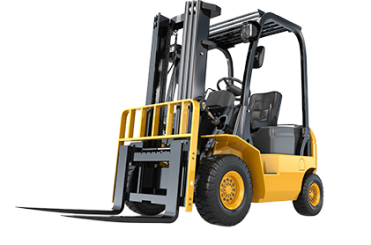Find Trusted Construction Equipment Rentals: Discover Our Dozer Rental and Scissor Lift Rental Alternatives
Find Trusted Construction Equipment Rentals: Discover Our Dozer Rental and Scissor Lift Rental Alternatives
Blog Article
Crucial Tips for Handling Heavy Tools Rental Agreements and Logistics Effectively
Efficiently managing heavy equipment rental agreements and logistics is critical for the success of any type of task that depends on these sources. An extensive understanding of rental terms, paired with accurate evaluation of devices demands, lays the foundation for desirable arrangements. Coordinating transport logistics and intending for ongoing maintenance can substantially lower unanticipated expenses and delays. Nonetheless, the intricacies of these components usually existing obstacles that call for tactical foresight. What are the essential factors to consider that can change these prospective challenges into chances for performance and cost-saving?
Understand Rental Terms
Recognizing rental terms is necessary for effective heavy devices monitoring. Knowledge with the details regards to a rental agreement can significantly influence operational performance and cost-effectiveness. Key elements generally consist of rental period, repayment framework, and upkeep duties. The rental duration defines the duration for which the devices is leased, influencing budgeting and project timelines. Repayment structures frequently vary, encompassing daily, weekly, or month-to-month rates, which require specific estimations to stay clear of unexpected expenses.
In addition, it is essential to comprehend the maintenance commitments laid out in the contract. Usually, rental companies keep the tools, but understanding that is in charge of regular checks and fixings is essential to stop operational disturbances. Furthermore, terms might consist of provisions concerning responsibility for damages or theft, which can have severe financial ramifications otherwise effectively comprehended.

Assess Devices Requirements
Analyzing equipment needs is a crucial action for any task manager intending to enhance resource allowance and enhance functional efficiency. This process includes a comprehensive analysis of the task requirements, including particular jobs, timelines, and the sort of tools needed to attain wanted outcomes.
Begin by determining the extent of the project and the tasks that will be done. Think about elements such as the terrain, the range of procedures, and any type of prospective difficulties that might influence tools option. Engaging with staff member who will run the equipment can provide important insights into useful demands and choices.

Next, assess the capacity and capacities of offered equipment options. It is necessary to match the right tools to the tasks handy, making sure that it can manage the anticipated workload without jeopardizing safety or performance.
Furthermore, consider the rental period and frequency of use. Recognizing these aspects can aid figure out whether leasing or buying is the most affordable service. By carrying out an extensive evaluation of tools demands, project managers can make educated choices that bring about enhanced performance and lowered operational costs.
Negotiate Properly
As soon as the equipment requirements are clearly determined, the following action includes efficient arrangement with rental companies to secure favorable terms. A well-prepared arrangement approach is vital for accomplishing the finest possible bargain. Begin by investigating different rental business to understand their pricing structures, inventory availability, and credibility. This expertise will encourage you throughout negotiations and assist you develop practical assumptions.
When coming close to the negotiation table, be clear about your needs, consisting of the kind of devices, rental period, and any type of additional solutions you might require. This openness enables rental firms to give tailored solutions that can meet your specific requirements (forklift rental). Don't wait to request for discount rates, particularly for long-lasting services or bulk orders, as lots of firms are eager to provide giving ins to secure larger contracts
These variables can substantially influence the overall expense and ought to be clearly described in the rental arrangement. Make sure that all agreed-upon terms are documented in writing to protect against misconceptions and safeguard your passions throughout the rental duration.
Coordinate Transport Logistics
Working with transport logistics is an essential aspect of handling heavy devices rental agreements. Effective transportation ensures that devices is delivered on schedule and in ideal condition, thus decreasing downtime and improving job performance. To achieve this, it is necessary to establish a comprehensive logistics plan that describes the whole transport process from pickup to delivery.
Begin by evaluating the particular transportation requirements based upon the kind and dimension of the equipment entailed - heavy equipment rental. Involve with trustworthy transport providers who specialize in heavy devices to guarantee they have the essential proficiency and equipment, such as flatbed vehicles or specialized trailers. Go over variables such as weight restrictions, path limitations, and called for licenses to avoid unanticipated hold-ups
In addition, keep open communication with both the rental company and the transportation copyright to work with schedules effectively. Confirm all information, consisting of pick-up and drop-off times, to make certain every person is lined up and prepared. Lastly, develop contingency strategies to attend to any type of prospective interruptions, such as negative weather condition or traffic problems, which may affect the transport timeline. By diligently coordinating transport logistics, you can promote the stability of your rental arrangement and help with smooth project implementation.
Prepare For Maintenance and Assistance

Additionally, it is vital to communicate directly with the rental copyright relating to maintenance duties. Some arrangements may consist of upkeep as component of the rental service, while in various other instances, the obligation might fall on the tenant. Comprehending these terms will certainly assist avoid unforeseen expenses and liabilities.
In enhancement, having access to technical support can be indispensable. Make sure that the rental firm offers 24/7 support or an emergency situation call, permitting speedy resolution of any devices issues. Educating your team on proper equipment usage and regular checks can also considerably boost functional performance.
Verdict
To conclude, efficient monitoring of heavy equipment rental arrangements and logistics rest on a detailed understanding of rental terms, precise analysis of devices requirements, and proficient settlement skills. Working with transport logistics and preparing for maintenance further boost functional effectiveness. By implementing these strategies, companies can minimize dangers, control prices, and ensure that tasks proceed efficiently and within recognized timelines. Stressing clear interaction with all stakeholders stays critical in navigating the intricacies of devices service and logistics administration.
Efficiently taking care of hefty equipment rental agreements and logistics is vital for the success of any job that relies on these sources. By completely examining and recognizing these rental terms, services can make enlightened choices, mitigate risks, and ensure that their heavy equipment administration aligns with job goals forklift rental and financial restrictions.Working with transportation logistics is an essential element of managing heavy tools rental arrangements.In final thought, efficient management of hefty tools rental agreements and logistics hinges on a thorough understanding of rental terms, accurate assessment of tools needs, and skilled settlement skills. Highlighting clear interaction with all stakeholders continues to be vital in navigating the intricacies of tools leasing and logistics administration.
Report this page